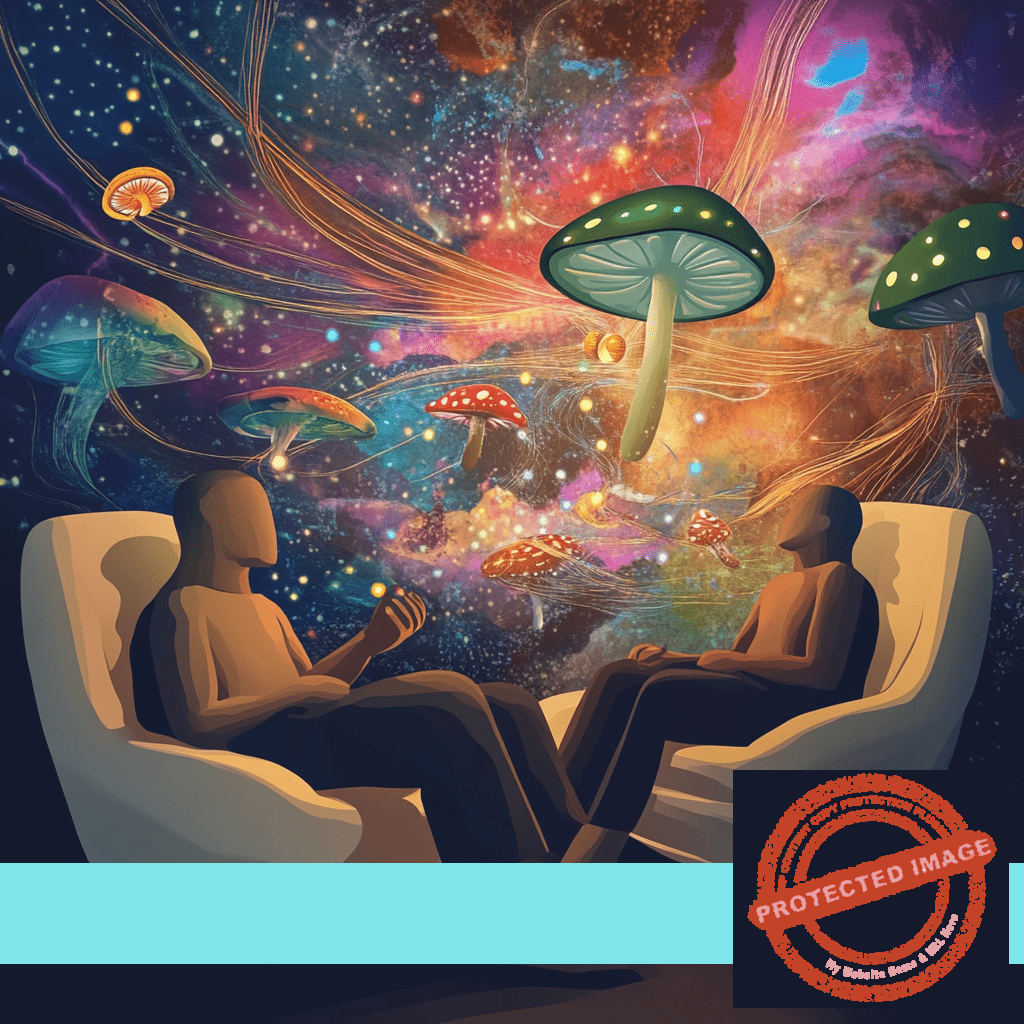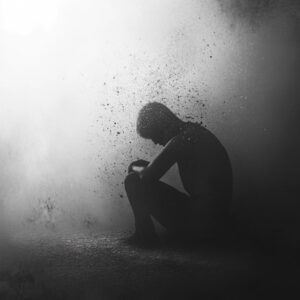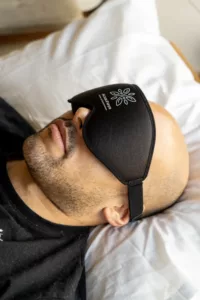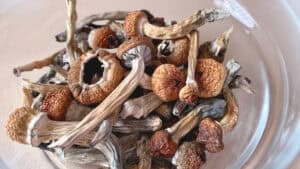
Best Therapy for Depression
3 January 2025
Depression is a serious mental health condition that affects approximately 280 million people around the globe. Women are more commonly impacted than men, and its severity can vary from mild to severe. Often, depression is characterized by persistent sadness or an overwhelming sense of despair, which can disrupt various aspects of life, including relationships, work productivity, and overall quality of life.
While treatments such as antidepressants and therapy are commonly used, the growing mental health crisis raises a vital question: “What is the most effective way to overcome depression?” This article takes a closer look at depression and explores the most promising depression treatment options available today. These include established methods and newer innovations like the increasingly popular “psilocybin therapy.” Whether you’re seeking help for yourself or a loved one, you’re in the right place.
Although no single treatment works universally, there are numerous pathways to help individuals manage depression and reclaim a sense of well-being.
Understanding Depression and Its Treatments
Depression manifests uniquely in each person. For some, it may present as prolonged sadness and hopelessness, while others may experience fatigue, difficulty concentrating, or feelings of worthlessness. Common symptoms include a loss of interest in once-enjoyed activities, changes in appetite or sleep patterns, and even physical pain without a clear cause. While some individuals may struggle to get out of bed, others may hide their symptoms behind excessive work or busyness.
This variability makes it clear that there isn’t a one-size-fits-all solution for depression. However, a wide range of treatments—from traditional methods like cognitive-behavioral therapy (CBT) to emerging options like psilocybin therapy—are transforming mental health care.
Traditional Therapies
Psychotherapy
Psychotherapy, particularly Cognitive Behavioral Therapy (CBT), has long been the first line of treatment for depression. CBT focuses on identifying and challenging negative thought patterns and replacing them with healthier, more constructive ones. This form of therapy equips individuals with long-term coping mechanisms, reducing the likelihood of relapse. For mild to moderate depression, CBT is often recommended as the first line of treatment. While CBT is the most common behavior therapy there are also many others.
While Psychotherapy and CBT are the most common talk therapies there may also be potential in group therapy.
Medication
Antidepressants, particularly selective serotonin reuptake inhibitors (SSRIs), are widely prescribed for moderate to severe depression. These medications increase serotonin levels in the brain, helping to stabilize mood. While they don’t work for everyone, antidepressants can provide significant relief for many individuals. SSRIs, in particular, are favored for their convenience, as they don’t require frequent therapy sessions—a key advantage given the limited access to mental health professionals in many areas.
Exercise and Lifestyle Adjustments
Research consistently highlights the mood-enhancing effects of regular physical activity. Exercise triggers the release of endorphins, natural chemicals that boost mood and energy. When combined with healthy habits like balanced nutrition, proper hydration, and good sleep hygiene, these lifestyle changes can provide a strong foundation for recovery. Such strategies are especially effective for mild depression or as complementary measures alongside other treatments.

Could Psilocybin Therapy be a Novel Solution?
In recent years, psilocybin—the active ingredient in magic mushrooms—has emerged as a groundbreaking treatment for depression. Both researchers and mental health experts are examining its potential to bring relief, particularly for individuals who haven’t responded to traditional methods.
How Psilocybin Works
Psilocybin interacts with serotonin receptors in the brain, which leads to an effect often referred to as “rewiring” mental pathways. This process enables individuals to confront and process emotions, traumas, or negative thought patterns in a more constructive manner. Unlike SSRIs, which tend to manage symptoms, psilocybin appears to tackle the underlying causes of depression, encouraging emotional healing and personal insight. If you are interested in learning more about how psilocybin and magic mushrooms work find our blog post here.

Evidence of Efficacy
Studies indicate that even a single psilocybin session can result in substantial and lasting mood improvements. Research published in leading medical journals highlights psilocybin’s potential to alleviate symptoms in individuals with treatment-resistant depression, offering renewed hope to those for whom traditional treatments have failed. Some interesting studies that found a decrease in depression symptoms after a single use of psilocybin can be found here. Many researchers are looking into the possibility of using psilocybin as a treatment for major depressive disorder as well as treatment for cancer patients who are experiencing symptoms of depression and anxiety.

What Does Psilocybin Therapy Look Like?
Though psilocybin therapy is not a legalized treatment yet many places are in the process of getting psilocybin therapy or psilocybin analogues to be approved to be used in therapy. Most of psilocybin therapy is happening in the underground or is being used in clinical study settings.
Psilocybin therapy typically takes place in a controlled setting under the supervision of trained professionals. The process begins with preparatory sessions to build trust and set intentions. During the therapy session, participants consume psilocybin in a safe environment, often accompanied by calming music and supportive guides. Afterward, follow-up integration sessions help individuals reflect on their experiences and apply newfound insights to their daily lives.
Some individuals opt for structured retreats that combine psilocybin therapy with holistic practices like meditation and mindfulness. These retreats offer a comprehensive healing experience, emphasizing both emotional and physical well-being.
Choosing the Best Therapy for Depression
Selecting the right treatment depends on several factors, including the severity of depressive symptoms, personal preferences, and the availability of resources. These are some points that could help someone with depression decide which treatment and or treatments are best for them:
Severity of Symptoms
Severity of depressive-like symptoms is arguable the biggest factor when making this decision. Different individuals will not only be more susceptible to particular types of treatment but the severity of the symptoms will also determine the best treatment plan.
For mild depression, lifestyle changes, psychotherapy, or a combination of the two may be sufficient ways to treat depression. In more severe cases, medication or innovative therapies like psilocybin may be necessary.
It is extremely common that those struggling with major depression will also struggle with anxiety disorder.
Simple lifestyle changes can make a big change as it usually leads to other changes. Think for example you decide to wake earlier everyday which allows you to get a workout in the morning which then influences you to change your eating habits. Another example would be you set timers on the apps you use on your phone and now you find more time or space for yourself as well as your social circle.
Personal Preferences
Each person’s comfort level and goals play a critical role in choosing the best treatment. Some may prefer traditional talk therapy, while others might explore alternative treatments such as psilocybin or ayahuasca retreats. Not everyone will be open to trying all of the types of therapy there are, but sometimes individuals need to cycle through all of the different options until they find the one that best suits their needs and symptom severity.
Access and Support
The availability of treatments varies by location. For instance, psilocybin therapy is not yet widely legalized, requiring some individuals to travel to places where it is accessible. Having access to mental health professionals and a strong support network also significantly impacts the success of any treatment plan. There is a need for more therapists as the mental health crisis continues.

Why is Psilocybin Growing in Popularity?
Traditional approaches like CBT and SSRIs remain valuable, but psilocybin’s ability to address the root causes of depression has set it apart. Unlike conventional medications that mainly manage symptoms, psilocybin fosters deep emotional insights and promotes long-term healing. Its growing popularity reflects a shift in mental health care, emphasizing personalized and holistic approaches.
Conclusion
Coping with anxiety and depression is not an easy thing to do as it can affect so many areas of life, but the wide array of treatment options available today ensures that there is hope for everyone. From proven methods like CBT and lifestyle changes to cutting-edge treatments like psilocybin therapy, the right approach can bring about transformative results. Even for those that are treatment resistant, there are still treatments being developed.

References
Cladder-Micus, M. B., Speckens, A. E. M., Vrijsen, J. N., T Donders, A. R., Becker, E. S., & Spijker, J. (2018). Mindfulness-based cognitive therapy for patients with chronic, treatment-resistant depression: A pragmatic randomized controlled trial. Depression and anxiety, 35(10), 914–924. https://doi.org/10.1002/da.22788
Goodwin, G. M., Aaronson, S. T., Alvarez, O., Arden, P. C., Baker, A., Bennett, J. C., Bird, C., Blom, R. E., Brennan, C., Brusch, D., Burke, L., Campbell-Coker, K., Carhart-Harris, R., Cattell, J., Daniel, A., DeBattista, C., Dunlop, B. W., Eisen, K., Feifel, D., Forbes, M., … Malievskaia, E. (2022). Single-Dose Psilocybin for a Treatment-Resistant Episode of Major Depression. The New England journal of medicine, 387(18), 1637–1648. https://doi.org/10.1056/NEJMoa2206443
Haikazian, S., Chen-Li, D. C. J., Johnson, D. E., Fancy, F., Levinta, A., Husain, M. I., Mansur, R. B., McIntyre, R. S., & Rosenblat, J. D. (2023). Psilocybin-assisted therapy for depression: A systematic review and meta-analysis. Psychiatry research, 329, 115531. https://doi.org/10.1016/j.psychres.2023.115531
Ling, S., Ceban, F., Lui, L. M. W., Lee, Y., Teopiz, K. M., Rodrigues, N. B., Lipsitz, O., Gill, H., Subramaniapillai, M., Mansur, R. B., Lin, K., Ho, R., Rosenblat, J. D., Castle, D., & McIntyre, R. S. (2022). Molecular Mechanisms of Psilocybin and Implications for the Treatment of Depression. CNS drugs, 36(1), 17–30. https://doi.org/10.1007/s40263-021-00877-y
Monroe, S. M., & Harkness, K. L. (2022). Major Depression and Its Recurrences: Life Course Matters. Annual review of clinical psychology, 18, 329–357. https://doi.org/10.1146/annurev-clinpsy-072220-021440
Rakel R. E. (1999). Depression. Primary care, 26(2), 211–224. https://doi.org/10.1016/s0095-4543(08)70003-4
Tiller J. W. (2013). Depression and anxiety. The Medical journal of Australia, 199(S6), S28–S31. https://doi.org/10.5694/mja12.10628


